Filter by
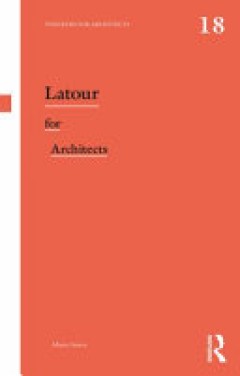
Latour for architects
Bruno Latour is one of the leading figures in Social Sciences today, but his contributions are also widely recognised in the arts. His theories ‘flourished’ in the 1980s in the aftermath of the structuralism wave and generated new concepts and methodologies for the understanding of the social. In the past decade, Latour and his Actor-Network Theory (ANT) have gained popularity among researc…
- Edition
- 1
- ISBN/ISSN
- 9780429328510
- Collation
- xiv + 141 p
- Series Title
- -
- Call Number
- 720.1 YAN l
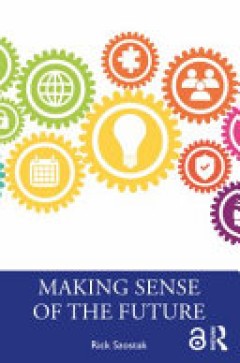
Making sense of the future
Making Sense of the Future integrates the latest thinking in Future Studies with the author’s expertise in world history, economics, interdisciplinary studies, knowledge organization, and political activism. The book takes a systems approach that recognizes the complexity of our world. It begins by suggesting a set of goals for human societies and identifying innovative strategies for achievi…
- Edition
- -
- ISBN/ISSN
- 9781003186854
- Collation
- xiv + 193 p
- Series Title
- -
- Call Number
- 303.49 RIC m
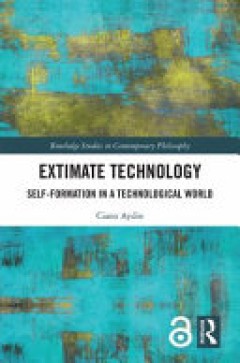
Extimate technology : self-formation in a technological world
This book investigates how we should form ourselves in a world saturated with technologies that are profoundly intruding in the very fabric of our selfhood. New and emerging technologies, such as smart technological environments, imaging technologies and smart drugs, are increasingly shaping who and what we are and influencing who we ought to be. How should we adequately understand, evaluate an…
- Edition
- -
- ISBN/ISSN
- 9781003139409
- Collation
- xii + 343 p
- Series Title
- -
- Call Number
- 303.48301 AYD e
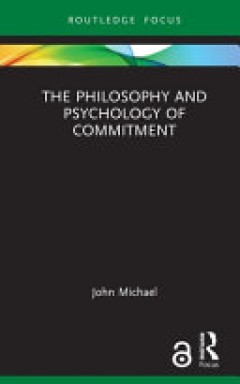
The philosophy and psychology of commitment
The phenomenon of commitment is a cornerstone of human social life. Commitments make individuals’ behavior predictable, thereby facilitating the planning and coordination of joint actions involving multiple agents. Moreover, commitments make people willing to rely upon each other, and thereby contribute to sustaining characteristically human social institutions such as jobs, money, government…
- Edition
- -
- ISBN/ISSN
- 9781315111308
- Collation
- viii + 101 p
- Series Title
- -
- Call Number
- 158 MIC p

Unsettling translation : studies in honour of Theo Hermans
This collection engages with translation and interpreting from a diverse but complementary range of perspectives, in dialogue with the seminal work of Theo Hermans. A foundational figure in the field, Hermans’s scholarly engagement with translation spans several key areas, including history of translation, metaphor, norms, ethics, ideology, methodology, and the critical reconceptualization of…
- Edition
- -
- ISBN/ISSN
- 9781003134633
- Collation
- xviii + 263 p
- Series Title
- -
- Call Number
- 418.02 UNS u
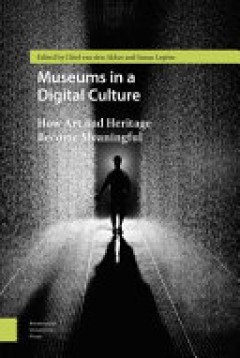
Museums in a digital culture : how art and heritage become meaningful
The experience of engaging with art and history has been utterly transformed by information and communications technology in recent decades. We now have virtual, mediated access to countless heritage collections and assemblages of artworks, which we intuitively browse and navigate in a way that wasn't possible until very recently. This collection of essays takes up the question of the cultural …
- Edition
- -
- ISBN/ISSN
- 9789089646613
- Collation
- -
- Series Title
- -
- Call Number
- 069.02854 VAN m
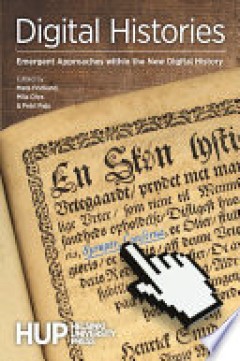
Digital Histories: Emergent Approaches within the New Digital History
Historical scholarship is currently undergoing a digital turn. All historians have experienced this change in one way or another, by writing on word processors, applying quantitative methods on digitalized source materials, or using internet resources and digital tools. Digital Histories showcases this emerging wave of digital history research. It presents work by historians who – on their ow…
- Edition
- -
- ISBN/ISSN
- 9789523690219
- Collation
- -
- Series Title
- -
- Call Number
- 025.069 FRI d
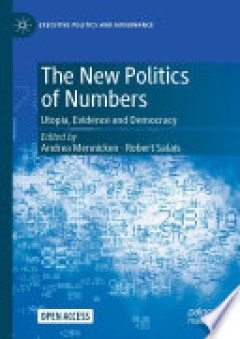
The new politics of numbers : utopia, evidence and democracy
This open access book offers unique insight into how and where ideas and instruments of quantification have been adopted, and how they have come to matter. Rather than asking what quantification is, New Politics of Numbers explores what quantification does, its manifold consequences in multiple domains. It scrutinizes the power of numbers in terms of the changing relations between numbers and d…
- Edition
- -
- ISBN/ISSN
- 9783030782016
- Collation
- XXVII, 497 p
- Series Title
- -
- Call Number
- 320.0723 AND t

Understanding leisure
First published in 1989. Understanding Leisure is a readable introductory analysis of the key elements in the study of leisure. This includes leisure concepts and dimensions of leisure, its activity forms, participants, provision, and leisure futures, leisure and social theory. A collaborative work of six authors, Understanding Leisure is a textbook which introduces the reader to the interrelat…
- Edition
- Ed. 1
- ISBN/ISSN
- 9780429054570
- Collation
- xi, 274 p
- Series Title
- -
- Call Number
- 306.4812 HAY u

Routledge handbook of global sport
The story of global sport is the story of expansion from local development to globalized industry, from recreational to marketized activity. Alongside that, each sport has its own distinctive history, sub-cultures, practices and structures. This ambitious new volume offers state-of-the-art overviews of the development of every major sport or classification of sport, examining their history, …
- Edition
- -
- ISBN/ISSN
- 9781315714264
- Collation
- xi, 501 p
- Series Title
- -
- Call Number
- 306.483 NAU r
 Computer Science, Information & General Works
Computer Science, Information & General Works  Philosophy & Psychology
Philosophy & Psychology  Religion
Religion  Social Sciences
Social Sciences  Language
Language  Pure Science
Pure Science  Applied Sciences
Applied Sciences  Art & Recreation
Art & Recreation  Literature
Literature  History & Geography
History & Geography